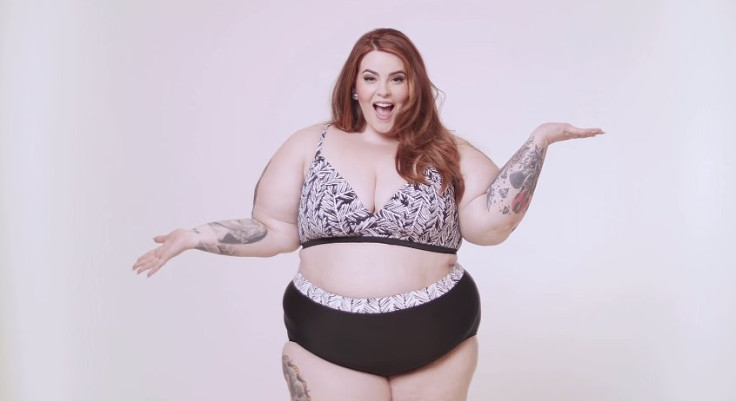Facebook apologises for blocking plus-size model photo ad because it was 'undesirable'

Facebook has apologised to a feminist group after it decided to block an advert that featured a plus-sized model posing in a bikini.
Facebook initially told the group, Cherchez La Femme of Australia, that the advert was rejected because "the image depicts a body or body part in an undesirable manner" and it violates the company's "health and fitness" policy.
Types of images that are never allowed, according to the statement posted to Cherchez La Femme's Facebook page, include "close-ups of 'muffn tops' where overhanging fat is visible," and "people pinching their fat/cellulite," among others.
Facebook claim that these types of advert make "viewers feel bad about themselves," explained "Jenny" of the "Facebook Ads Team" in a statement. She suggested a more appropriate photo might involve someone "running or riding a bike."
The ad, featuring plus-sized model Tess Holliday, was designed to promote an event the group is hosting called Feminism and Fat.
Facebook had originally allowed the event page to remain, but refused to approve the group's advert, which would have increased the number of views. Ironically, the stated purpose of the Facebook policy is aimed at blocking content that encourages unhealthy weight loss — even though the advert was for an event promoting positive attitudes about all kinds of bodies.
Facebook told @cherchezlafemmo to replace image of Tess Holliday for body-posi event over fears of fat-shaming. Huh? https://t.co/RbAtzuzbdV
— Scarlett Harris (@ScarlettEHarris) May 20, 2016
"We're raging pretty hard over here — both because Facebook seemingly has no idea that plus sized, self-describing fat women can feel great about themselves, and also because we haven't been able to boost the original damn post," said Cherchez La Femme producer Jessamy Gleeson on the group's Facebook page.
Facebook finally reversed its decision and apologised after Cherchez La Femme complained. The ad image was then approved.
"Our policies are in place to protect the community from offensive ads. This is not the case here and I'm sorry for our incorrect review," said a Facebook team member in a statement to the group. "We processes millions of ads per week, and there are instances that we incorrectly disapprove an image."
Gleeson told Mashable that the group isn't satisfied with the apology. "It shouldn't take international media attention for Facebook to realise it has a problem with how it is policing women's bodies in its network. We would like to see Facebook seriously reconsider the policy that lead to this situation, and consult with feminists and body-positivist activists to rewrite and readdress this policy."
In March, Facebook was lambasted after the company determined that a photograph of topless Aboriginal women in ceremonial paint in a protest violated "community standards." Critics called the ban an obvious double standard because Facebook allows celebrities such as Kim Kardashian to pose topless with body paint.
The company has also been embroiled in controversy in the past over how it deals with posts of breastfeeding women. Facebook now clearly states it also photos of nursing mums as long as they're "compliant" with policy.
© Copyright IBTimes 2025. All rights reserved.






















